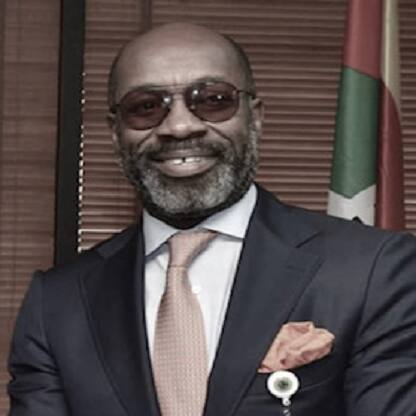Roland Ewubare
Nigerian National Petroleum Corporation (NNPC)
Chief Operating Officer, Upstream
Mr. Roland Ewubare is the Chief Operating Officer, Upstream, of the NNPC.
He joined NNPC in 2015 from the United States where he was the Founder and Executive Chairman of Madison Avenue Resources Inc., a private equity firm based in Atlanta.
Between 2000 and 2004, Mr. Ewubare worked in various senior positions at Schlumberger in New York, California and Nigeria where he served as the Executive Director (Oilfield Services) Schlumberger Nigeria.
Prior to joining Schlumberger, Mr Ewubare was a Corporate Associate at the global law form of Skadden, Arps, Slate, Meagher & Flom LLP (Skadden) in New York, where he was involved in significant transactions for some of world’s largest corporations including the 1998 ExxonMobil merger with deal consideration in excess of US$80 Billion.
His deal aggregate deal value in completed transactions exceeds US$150 Billion and he has received recognition and citation in the New York Law Journal and American Lawyer Magazine.
Mr. Ewubare obtained a Bachelor of Laws degree from the University of Ife in 1987; Master of Laws degree in International Business Law from Queen Mary & Westfield College, University of London in 1993; and a Master of Laws degree from Harvard Law School in 1998.

